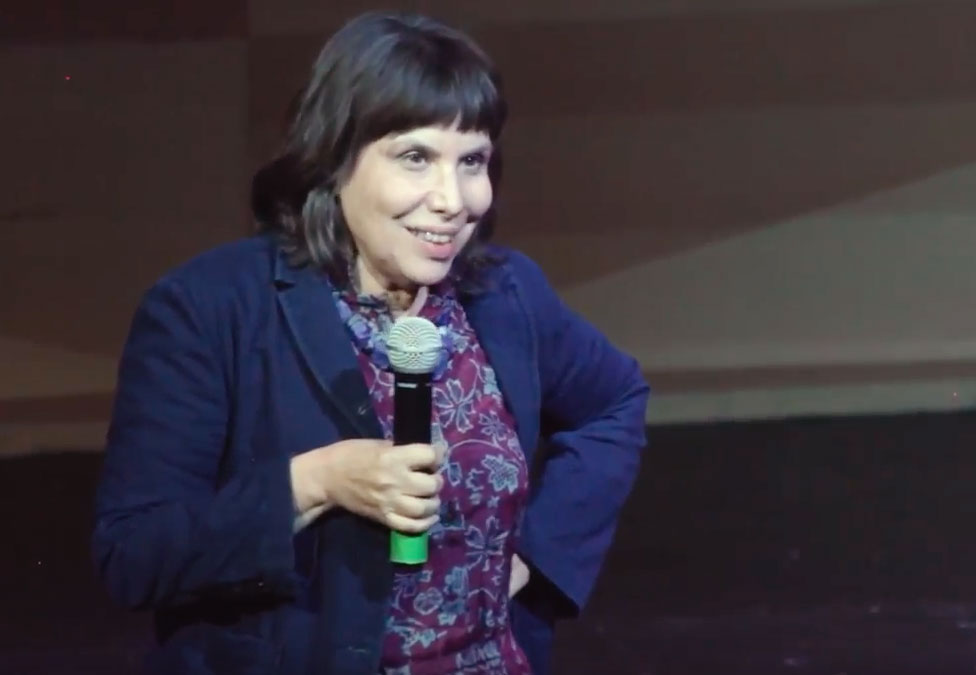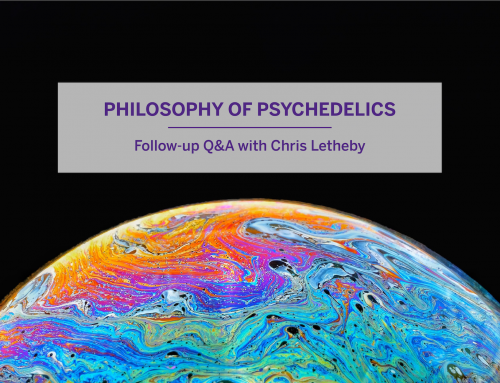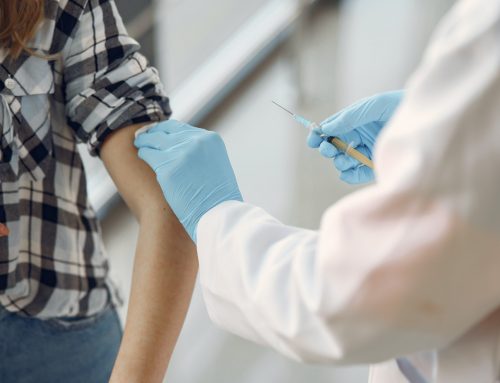Alison Gopnik is professor of psychology and affiliate professor of philosophy at the University of California, Berkley. She researches children’s development and learning, and philosophical problems in the philosophy of mind and morality. She is the author of many academic articles and books, including, for popular consumption, The Philosophical Baby: What Children’s Minds Tell Us About Truth, Love, and the Meaning of Life (2009) and The Gardener and the Carpenter: What the New Science of Child Development Tells Us About the Relationship Between Parents and Children (2016).On September 28-29, 2017 the Rotman Institute of Philosophy hosted Professor Gopnik.
After the lecture The Gardener and the Carpenter, Rotman member Meghan Winsby conducted the following interview with Professor Gopnik :
Meghan Winsby (MW): Thank you for visiting the Institute! Why is the modern notion of “parenting,” as a certain kind of goal-directed activity, problematic on your view?
Alison Gopnik (AG): I think it’s problematic for two reasons. One, it’s problematic because it doesn’t fit the evidence we have from the science about how childhood evolved and what kind of functions childhood could serve. And it’s also problematic because it makes the act of caregiving—the process of being a parent—anxious and guilty and generally disagreeable in a way that isn’t necessary. I think that it’s made middle class parents, at least now, much more tense and anxious in ways that they just don’t need to be.
MW: Can you explain, briefly, the gardener metaphor and the carpenter metaphor, as competing approaches to parenting?
AG: The picture that goes with that very word, “parenting,” became really prominent at the end of the 20th century. The idea is that the process of being a parent is a bit like being a carpenter. It’s about taking some raw materials and trying to craft them into an adult who has a particular set of properties. The idea is that somehow if you just do the right things—read the right books, buy the right apps, use the right methods and techniques—you’re going to be able to shape a child into a particular kind of adult. This adult will be better than they might otherwise be. That’s this parenting/carpenter model.
I think the model that comes out of the science—it comes out of evolution for example—is a model that’s much more like what happens when you’re a gardener. So, for most gardeners anyway, nothing ever comes out the way you expected. That’s true both for the wonderful things that do happen in the garden as well as all of the wonderful plans you have that go awry. Now that just happens to be true, but it’s also true in a deeper way. Part of the whole point of having a garden as opposed to, say, having a living room, is exactly that you want to create an ecosystem that’s variable. You want a system that has lots of diversity, and will change in different kinds of ways in response to the environment. When you create that kind of variable, diverse and unpredictable system, that kind of system is much more resilient to change than a monoculture, where you’re just trying to build the biggest potatoes. And you can think that a lot of “parenting” is more like the monoculture (let’s get that potato that’s going to go to Harvard!), than it is like trying to create this resilient, diverse ecosystem.
MW: From an evolutionary perspective, what can the particular human life history tell us about the purpose of childhood?
AG: One of the things that’s most distinctive about us as human beings is that we have this extremely strange life history with this very, very long period of childhood. It’s twice as long as our closest primate relatives,’ and there’s a real puzzle about why this is. What effect does this childhood have? What does this long period of childhood do for us? And if you look at evolutionary biology in general, there seems to be a pretty systematic relationship between having this long period of immaturity, and a lot of learning in the adult. So the more the adult animals are relying on learning—living in many different kinds of environments, thriving across different environments because they can learn about those environments—the longer a period of immaturity and childhood they seem to have. They also have the largest brains. And we’re kind of the extreme on all of those measures. So we have the largest brains, adapt and thrive across the widest range of environments, and have the longest childhood. One idea is that what childhood does is give each generation this protected period in which they can explore and innovate and try out different new possibilities. It is the caregivers’ being committed to those children that allows all that innovation and possibility to happen.
MW: What is an example of some of the more recent findings in developmental psychology research that have altered the way we view children as learners?
AG: Well, I think the picture in developmental psychology, neuroscience, and in philosophy for many years has been a view of the child as sort of a defective adult. This is a view of a child as like an adult but missing certain pieces, and the picture that comes out of more recent science is more like a trade-off picture. Here childhood might be understood as a period where children have capacities and motivations and tendencies that are really different from the ones that adults have in general. And it is really important to have people around in your culture who have those tendencies. In particular there is a tension that computer scientists talk about between “exploration” and “exploitation.”
So, the idea is that childhood is a period where you can freely explore a range of possible solutions to problems, or possible hypotheses about how the world works. And then adulthood is a period where you take those hypotheses and solutions that you explored as a child and actually put them to use as an adult to do the things we all need to do as adults.
MW: Young children today are poised to innovate and adapt to new technologies more quickly than previous generations, and we might see this as a positive thing. Do you see technology as in any way presenting a barrier to the sort of parent-child relationship represented by the gardener model?
AG: So, I’m a bit of a contrarian about technology in the sense that the overwhelmingly pervasive view, well in advance of any conceivable evidence, is that new technology is going to be terrible for children—that children are being destroyed by cell phones, etc. The first thing to say is that there isn’t, and there couldn’t be, any evidence at this stage to support this one way or the other.
I think the broader theoretical point is that children have always had this relationship to new technology. Indeed, from an evolutionary perspective, part of the point of having this early period of exploration is that it is a period when either you can actually innovate or, probably more importantly, you are motivated to adopt the innovations that the other people have introduced. So, I think what actually happens is that it is exactly because childhood is this period of switching from exploration to exploitation—to adults who have to face a new technology—it always seems as if that technology is burdensome, difficult, attention-demanding, leads to a lack of flexibility and distractedness, etc.
Part of why it seems this way is that you are trying to master the technology with an adult brain, which is not very well designed to explore and master new possibilities.
A way I put this in the book is, “the day after you’re born is always Eden and the day after your children are born it’s Mad Max.” I think it is because the technological innovations that happen before we are born don’t even count as technology in these kinds of discussions. We don’t look at electric lights, for example and say, “Oh my God, I’m surrounded by technology!” We of course take them for granted. Electric lights, trains, even materials like wood or silk may be technologies we take for granted, but these are examples that were arguably much more radical technological innovations than anything we have now. It’s just that those were innovations that happened before we were born, so we don’t count them. It could be that this time is different—we have no guarantee that it isn’t different. But I think judging from the past, and from the data that we have already about children (adolescents especially) and technology, what will happen is that new technologies will be taken for granted by this generation just the way technologies were taken for granted by previous generations.
MW: You’re not only a distinguished psychologist and philosopher, but also a mother and grandmother. How does this experience inform your research and vice versa?
AG: There are psychologists, famously, who’ve done some systematic observations of their own children; for example, Jacques Piaget and his wife, or Darwin, who observed his own children. I’ve never been organized enough to be able to do that. But I do think that very often you can get hints of things that are really interesting in the anecdotes and the everyday things you see your children, and even more your grandchildren, do.
With your children you’re always trying to keep your head barely above water—putting out the fires and keeping disaster at bay. One of the things I’ve discovered with my books is that they sell very well among grandparents. Parents are too tired to actually sit down and read a book! But if you’re a grandparent it’s actually really a nice relation because you can have a little bit of detachment from the day-to-day. You can just watch this amazing miracle of these children developing. I’ve had the following experience, truly, as a grandmother.
My entire academic and intellectual career has been focused on this idea of children being like scientists—learning by experiment. I’ve put enormous effort into empirical experiments and computational and philosophical ideas to cash this out, and then I had my own grandchildren. So just in the last five years, one of the things I found myself doing was watching my granddaughter playing with Easter eggs, trying out all these things that the eggs could do, and I turned to my husband and said, “Look at that! That’s amazing! She’s like a little scientist doing these experiments! Who would have thought that would be true?” And I found myself thinking, “Can you imagine if your job was just to watch those children and figure out how they think? That would be such a fantastic job!” And of course this is actually supposed to be my job and I’ve been doing it for the last thirty years. Still, outside the context of being a grandmother it’s different than from within that context.
MW: What is the best single piece of advice you can give to parents hoping to be less carpenter- and more gardener-like?
AG: Well, the first piece of advice I would give anyone would be to skip the children and go straight to the grandchildren! But, more seriously, I think one important thing would be focusing better on each moment in our relationships with our children. Focus on this, particular child—with all its personal characteristics and idiosyncrasies—and yourself, with all your personal characteristics and idiosyncrasies. Then ask, are you both thriving in this relationship at this moment? You can kind of get an intuitive feeling for whether it’s going well—whether it’s thriving, or working. We do this same sort of thing in other relationships—with marriages or partnerships or friendships. You can then see if you can make it work better, the way you do with a friendship for example.
I think parents tend to feel under a lot of pressure about the effect something will have on their child twenty years in the future. I think that’s a mug’s game. There’s no evidence that there are very systematic relationships between the things you can consciously control now and how children come out in twenty years. One of the things I argue in the book is that even if you could shape your children to come out a particular way, you would have defeated the whole evolutionary point of childhood by doing it. The whole point of childhood is to introduce new ways of being in the world, new technologies, new ideas, new thoughts that you could never have anticipated in the first place.
This makes being a caregiver a very challenging, and philosophically deep and interesting relationship because it’s a relationship where you have to start out with this creature who is totally dependent on you. Then you turn them into a creature who’s totally autonomous from you, more so than your partners or friends are. So it’s very challenging. But I think that thinking about what’s happening now—to me and to this child now—rather than thinking about what’s going to happen twenty years from now, is a good practical tip.
Another thing that I think is important, especially for women (who are still doing most of the caregiving), is that there’s this tendency to think that there’s this kind of specialized practice. There’s a tendency to think there are a bunch of skills that are the parent skills, and you can get them from books or by practicing a kind of expertise. And then your job is to do these parenting things, at the expense of simply doing all the things you would normally do as an adult human being. And I think that the data—the science—suggests that the context in which children are learning best, especially young children, is when they’re interacting with adults who are doing the adult things they do. In forager cultures, for example, adults think it would be crazy to go out and do something different from what you would normally be doing simply because children are present. On the other hand, those parents are modifying what they do to include the children. They slow down the pace a little, for example, or give the child a part of the task to accomplish.
I think you can point to a lot of things most of us do every day like shopping, cooking, cleaning up the house, singing, going for walks, etc. Integrating children into the everyday activities and practices we want to do anyway is more healthy and engaging for them than stepping into the role of preschool teacher for an hour.
During her visit to the Rotman Institute, Alison Gopnik delivered two talks–The Gardener and the Carpenter: What developmental science tells us about relations between parents and children, and When children are better learners than adults are: Theory formation, causal models, and the evolution of learning. View videos of each talk, and learn more about Dr. Gopnik’s work by visiting the event pages.






